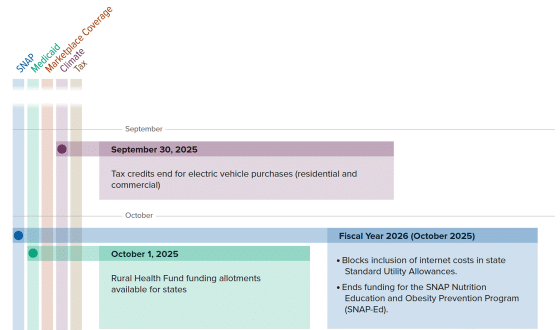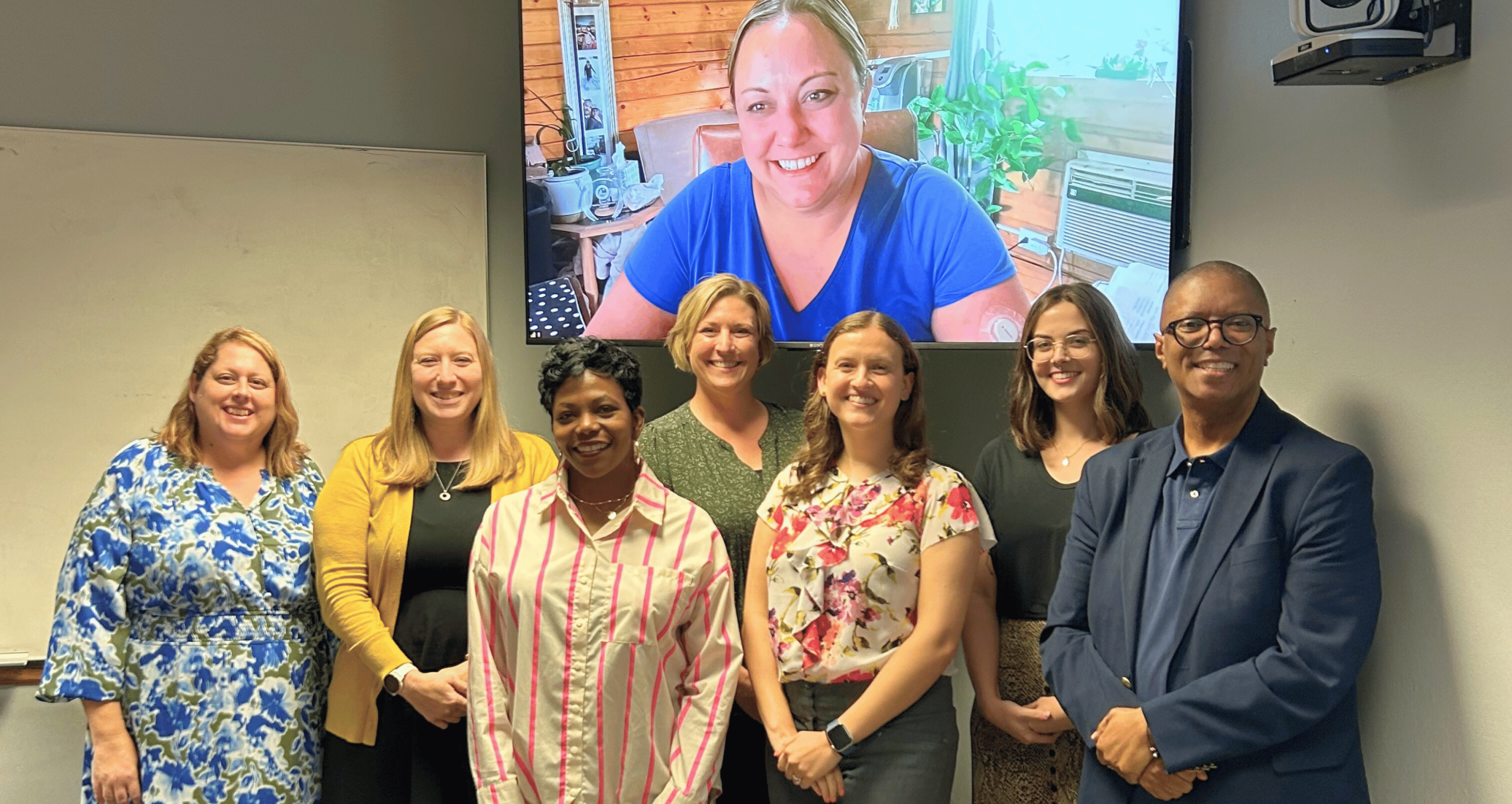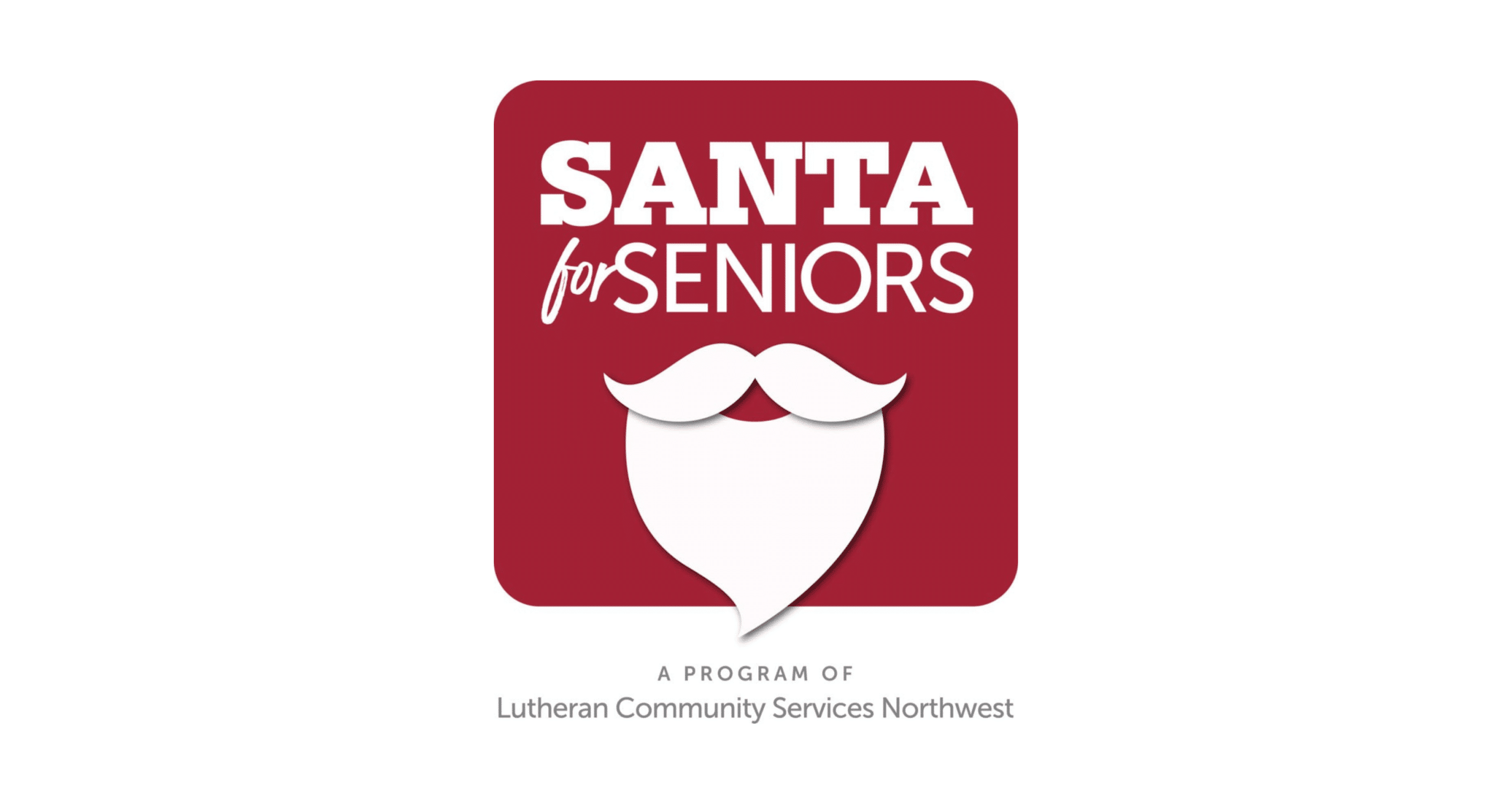How do you create more affordable housing? One unit at a time.
I saw this truth in action on my recent trip to California, where I joined California Lutheran Homes (CLH)—a member of the Lutheran Services in America network—for tours of affordable housing projects and the dedication of a new community space for the Biddy Mason Charitable Foundation (BMCF). Each represents a powerful example of how faith-based organizations are expanding housing services and supports to foster economic stability and community well-being.
Mission in Action: Creating Affordable Housing that Transforms Lives
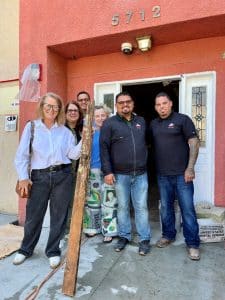 California Lutheran Homes fulfills its mission daily by providing assistance for those in need of housing and services through partnerships with congregations and community-based organizations, ensuring that all people have the dignity of a safe and stable place to live. Their recent work demonstrates how affordable housing development creates more than a building, embracing people, values, and partnerships that strengthen entire communities.
California Lutheran Homes fulfills its mission daily by providing assistance for those in need of housing and services through partnerships with congregations and community-based organizations, ensuring that all people have the dignity of a safe and stable place to live. Their recent work demonstrates how affordable housing development creates more than a building, embracing people, values, and partnerships that strengthen entire communities.
During my visit, I saw a property transformation that perfectly illustrates this. What once had rotted beams and uneven floors are now high-quality homes for more than 80 low-income residents who might otherwise have faced homelessness. This restoration was made possible only through an early-stage loan from California Lutheran Homes—a great example of the type of flexible, mission-aligned financing we are working to expand through our Housing Solutions Collaborative.
As Deacon Nancy Ackerman wisely said during our visit: “We create affordable housing one unit at a time.” That commitment is at the heart of how our network brings hope and housing stability to vulnerable populations across the country.
Honoring Legacy: The Biddy Mason Charitable Foundation
The visit also included the dedication of the newly renovated Biddy Mason Charitable Foundation home—a craftsman house purchased and restored by CLH to serve foster youth in Los Angeles.
Biddy Mason’s story is one of extraordinary resilience and faith. Born into slavery, she sued for and won her family’s freedom in California, became a respected healer and midwife, and emerged as one of Los Angeles’s first Black real estate owners and philanthropists. She was also a founder of the First AME Church. Her legacy of empowerment lives on through the foundation that bears her name.
With support from CLH, BMCF now has a permanent home from which to continue the mission of providing care, mentorship, and opportunity to foster youth. It was an honor to witness this dedication and to celebrate how California Lutheran Homes helped keep her spirit alive building both homes and hope.
A Network United for Housing and Economic Stability
California Lutheran Homes is a member of the Housing Solutions Collaborative, where members share insights, strategies, and lessons learned to accelerate affordable housing development across our national network. CLH also stepped forward as a founding member of our Housing Leadership Circle, providing catalytic funding that allows LSA to advance this critical work and expand housing services and supports nationwide.
This collaboration exemplifies how the LSA network leverages faith-based partnerships to make complex housing solutions achievable, helping vulnerable communities access the stability they need to thrive.
Join Us in Building Housing and Hope
Expanding affordable housing takes partnership, innovation, and shared commitment across sectors—faith-based organizations, philanthropies, health systems, and mission-driven investors all have a role to play.
If you are an LSA member, we invite you to join our Housing Solutions Collaborative—a learning and action network where members share tools, insights, and strategies to advance affordable housing and strengthen housing services and supports for people in their communities.
If you are a philanthropic partner, purpose-driven business, or impact investor, we invite you to join our Housing Leadership Circle—a national coalition that connects leaders with opportunities to invest in affordable housing, foster economic stability, and build stronger, more resilient communities through collaboration with Lutheran social ministry organizations across the country.
Together, we can ensure that every person has access to safe, affordable housing—and the dignity, health, and opportunity that comes with it.
Join us in this mission to build housing and hope, one unit at a time. Contact me at snewton@lutheranservices.org to learn more.
Susan Newton is Senior Director of Strategic Initiatives at Lutheran Services in America.
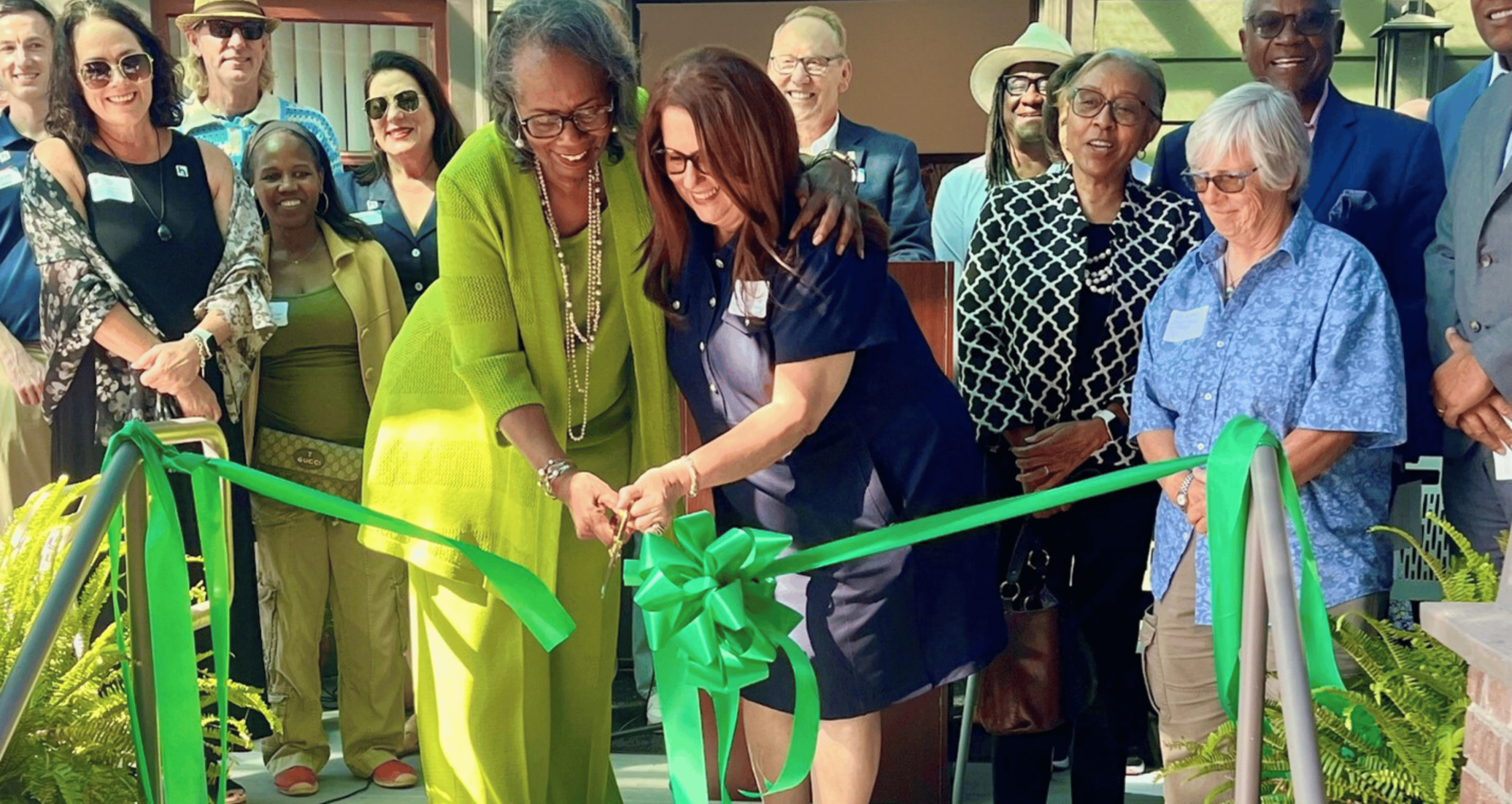
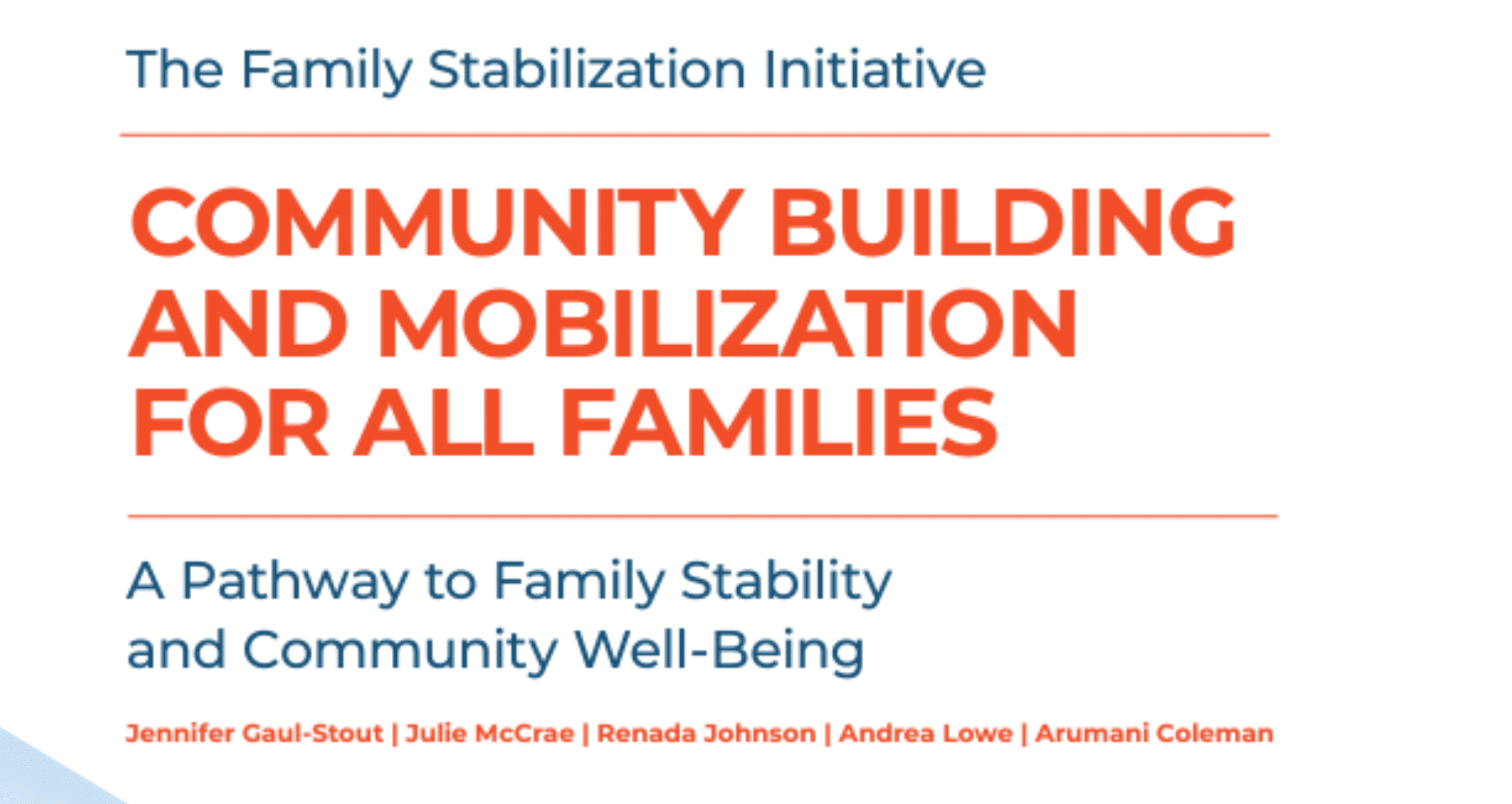


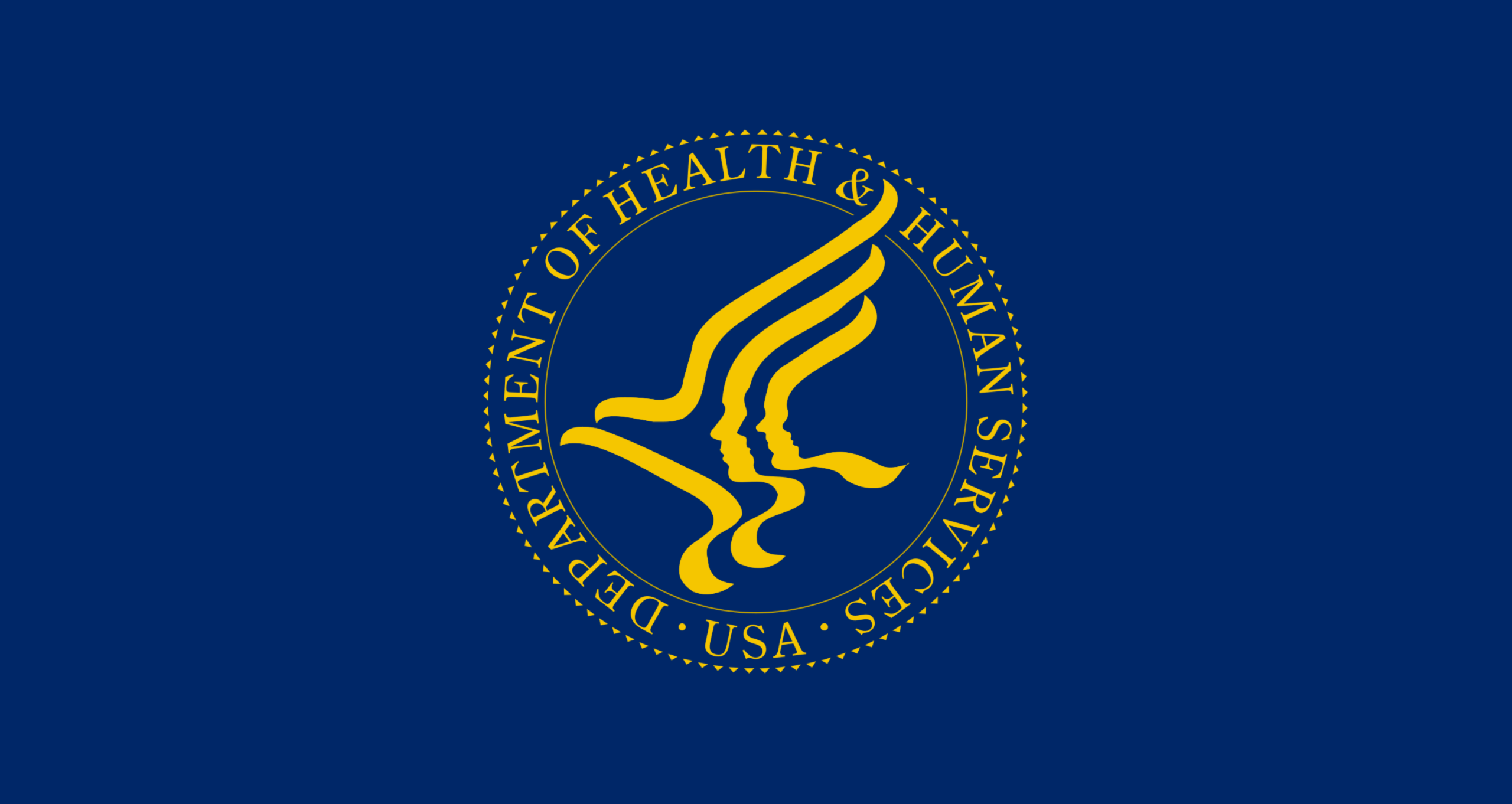
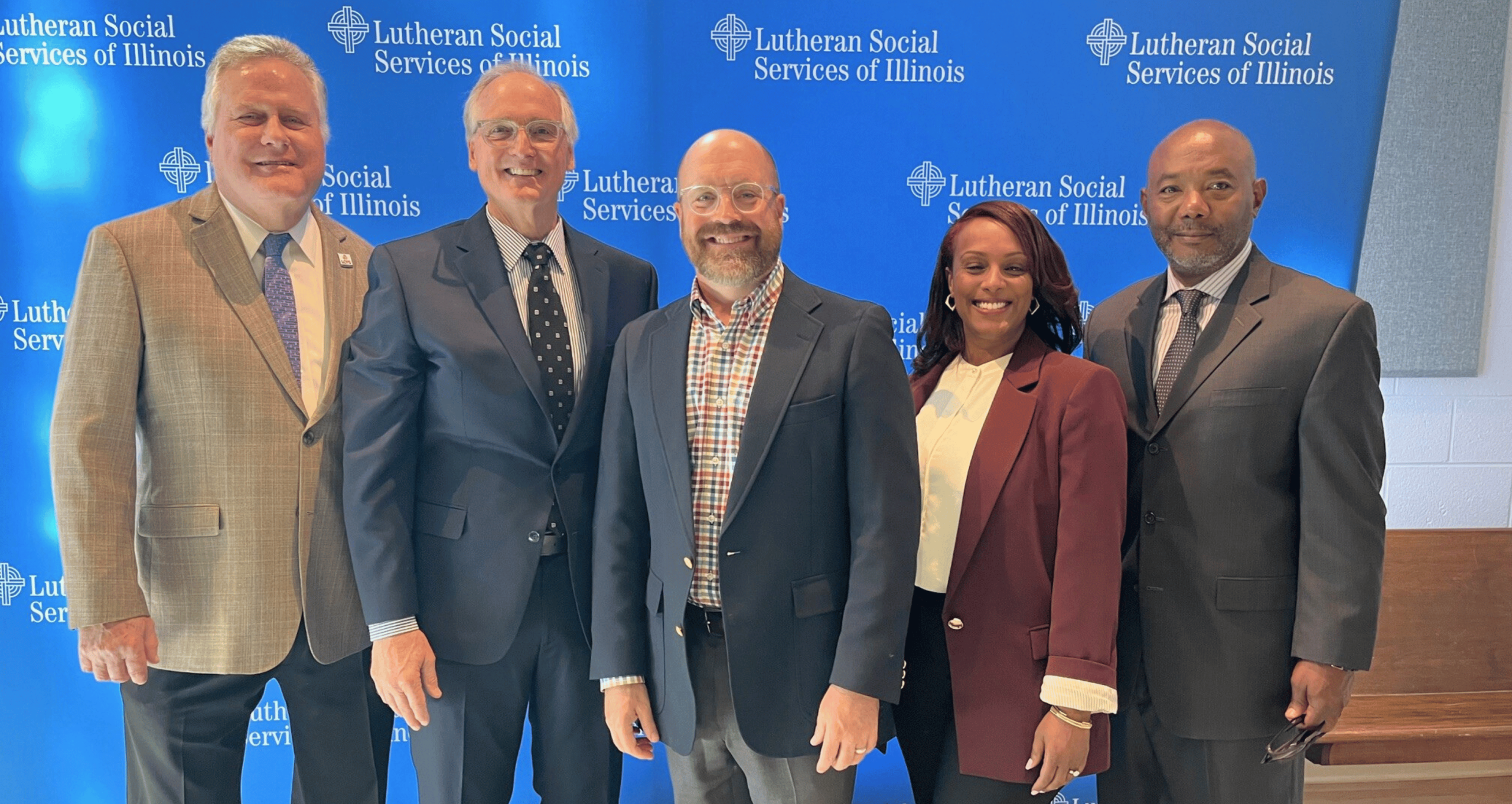
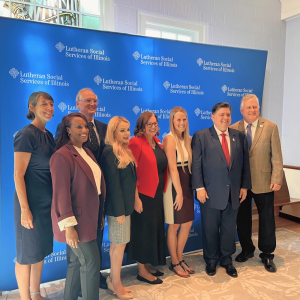 The event was hosted by Lutheran Social Services of Illinois (LSSI), which honored Governor J. B. Pritzker with the Paul Simon Courage in Public Service Award and state representative Lindsey LaPointe with the LSSI Legislator of the Year Award for their dedication to public service.
The event was hosted by Lutheran Social Services of Illinois (LSSI), which honored Governor J. B. Pritzker with the Paul Simon Courage in Public Service Award and state representative Lindsey LaPointe with the LSSI Legislator of the Year Award for their dedication to public service.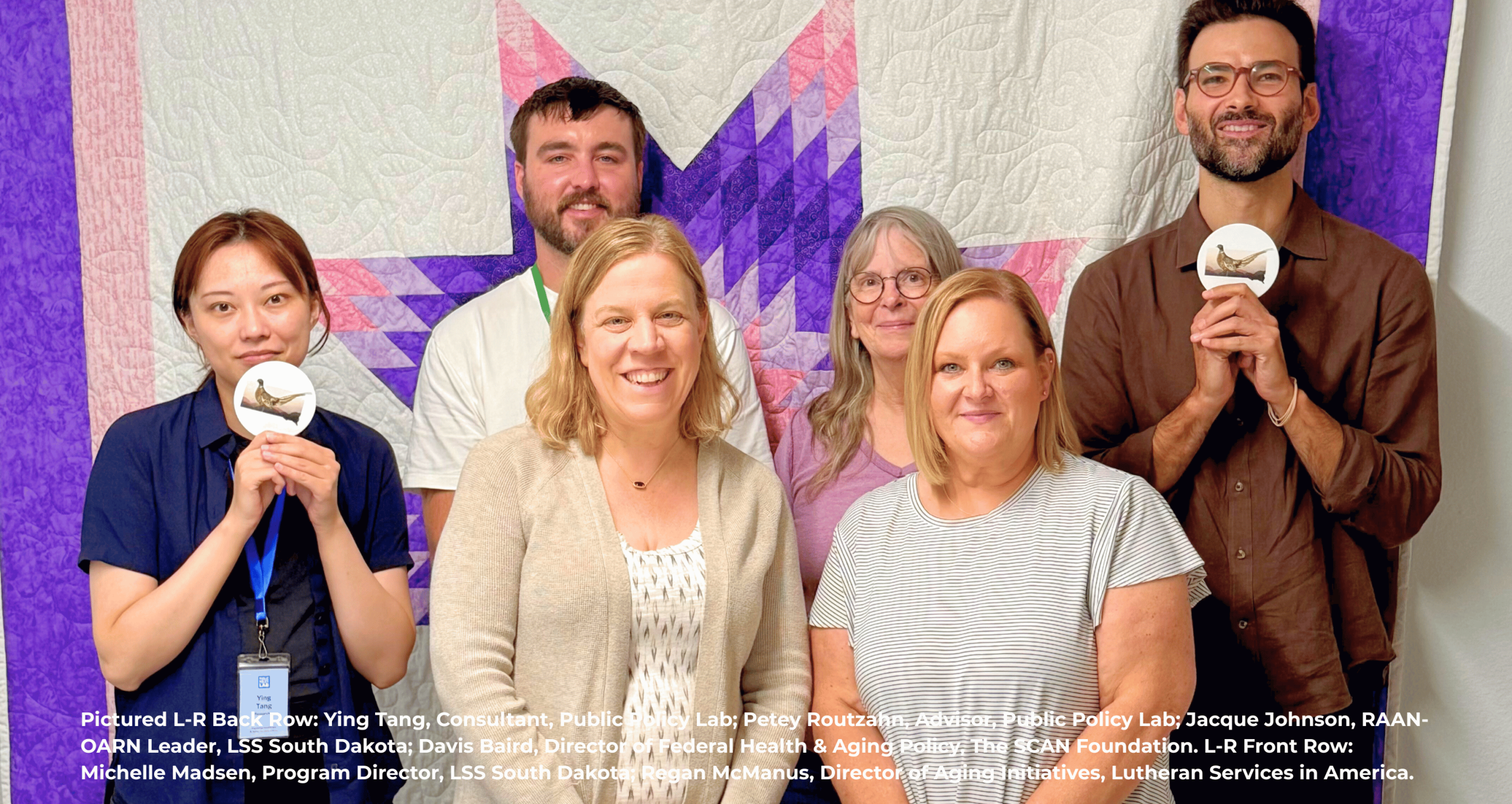
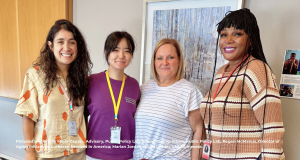 Rural Voices 2025 kicked off at the end of July in rural South Dakota and Minnesota — two states where older adults are underrepresented in policy and disproportionately impacted by provider shortages, limited infrastructure, and fragmented healthcare systems. In partnership with Public Policy Lab, Lutheran Social Service of Minnesota, and Lutheran Social Services of South Dakota, human-centered interviews were conducted with older adults who are dual-eligible (receiving Medicare and Medicaid) to learn what rural older adults need to age in place, the barriers they face in navigating healthcare systems, and how faith-based nonprofit services contribute to their wellbeing.
Rural Voices 2025 kicked off at the end of July in rural South Dakota and Minnesota — two states where older adults are underrepresented in policy and disproportionately impacted by provider shortages, limited infrastructure, and fragmented healthcare systems. In partnership with Public Policy Lab, Lutheran Social Service of Minnesota, and Lutheran Social Services of South Dakota, human-centered interviews were conducted with older adults who are dual-eligible (receiving Medicare and Medicaid) to learn what rural older adults need to age in place, the barriers they face in navigating healthcare systems, and how faith-based nonprofit services contribute to their wellbeing.
